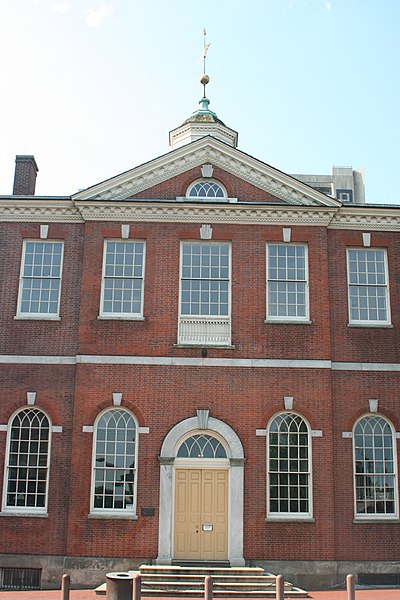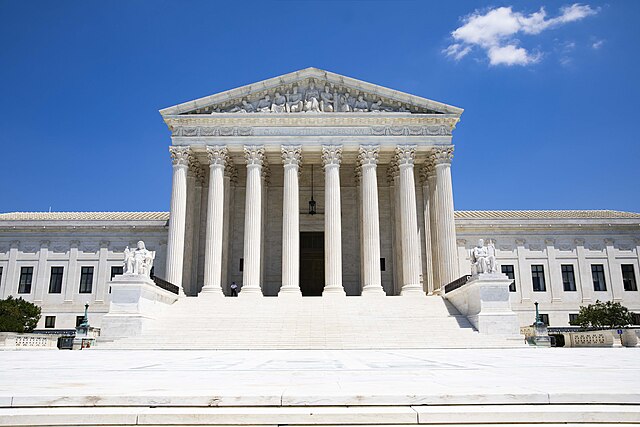Roe v. Wade, 410 U.S. 113 (1973), was a landmark decision of the U.S. Supreme Court in which the Court ruled that the Constitution of the United States generally protected a right to have an abortion. The decision struck down many abortion laws, and caused an ongoing abortion debate in the United States about whether, or to what extent, abortion should be legal, who should decide the legality of abortion, and what the role of moral and religious views in the political sphere should be. The decision also shaped debate concerning which methods the Supreme Court should use in constitutional adjudication.
George Frampton, law clerk to Justice Harry Blackmun during the 1971–72 term
Justice Harry Blackmun, the author of the majority opinion in Roe.
2021 Women's March, where many speakers bemoaned a looming threat to Roe.
Oral hearing for the German Constitutional Court's abortion decision, November 18, 1974
Supreme Court of the United States
The Supreme Court of the United States (SCOTUS) is the highest court in the federal judiciary of the United States. It has ultimate appellate jurisdiction over all U.S. federal court cases, and over state court cases that turn on questions of U.S. constitutional or federal law. It also has original jurisdiction over a narrow range of cases, specifically "all Cases affecting Ambassadors, other public Ministers and Consuls, and those in which a State shall be Party." The court holds the power of judicial review: the ability to invalidate a statute for violating a provision of the Constitution. It is also able to strike down presidential directives for violating either the Constitution or statutory law.
The Royal Exchange, New York City, the first meeting place of the Supreme Court
The court lacked its own building until 1935. From 1791 to 1801, it met in Philadelphia's City Hall, before moving to the Capitol Building in Washington, D.C.
John Marshall, chief justice from 1801 to 1835
The U.S. Supreme Court Building, current home of the Supreme Court, which opened in 1935








